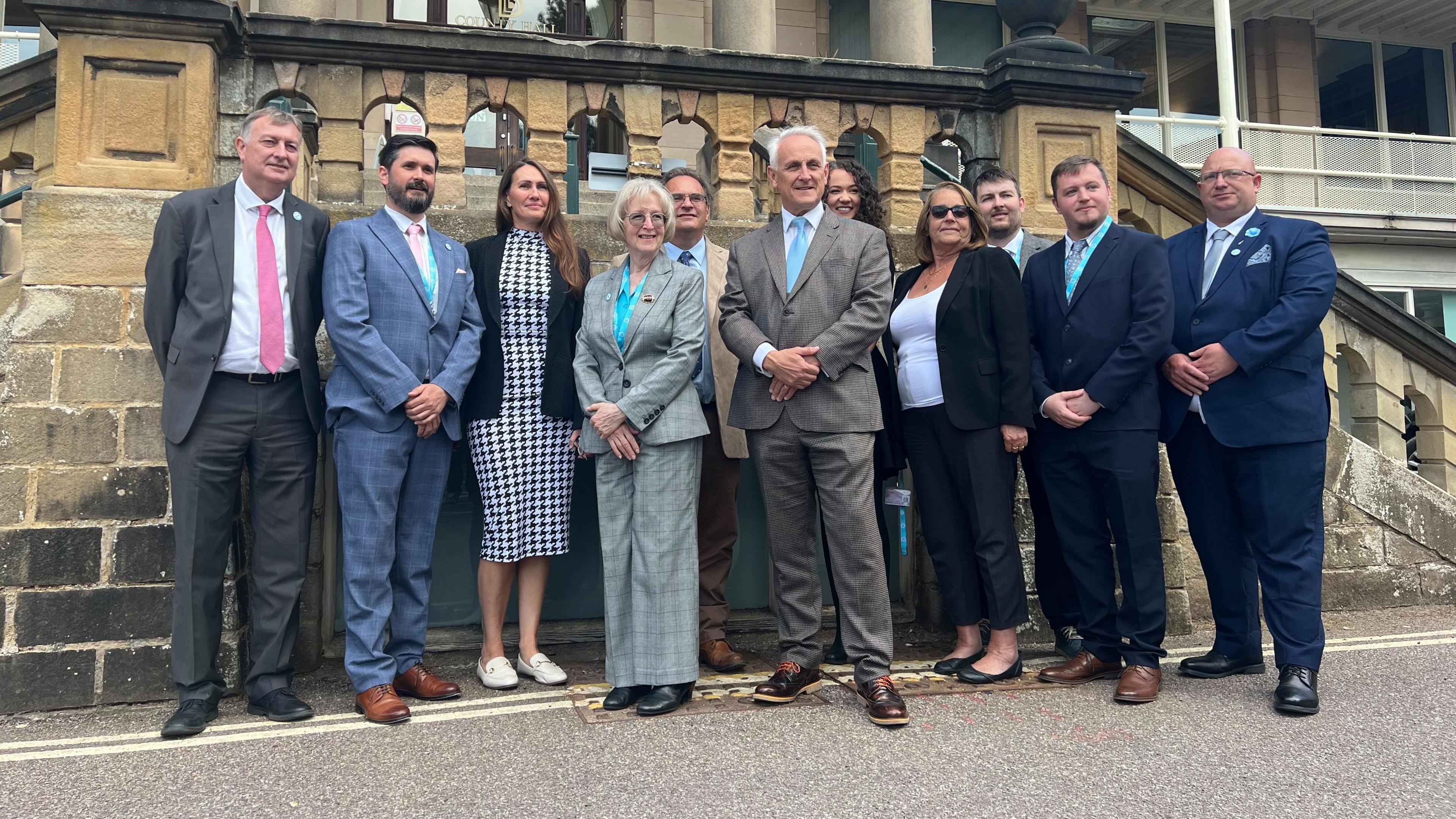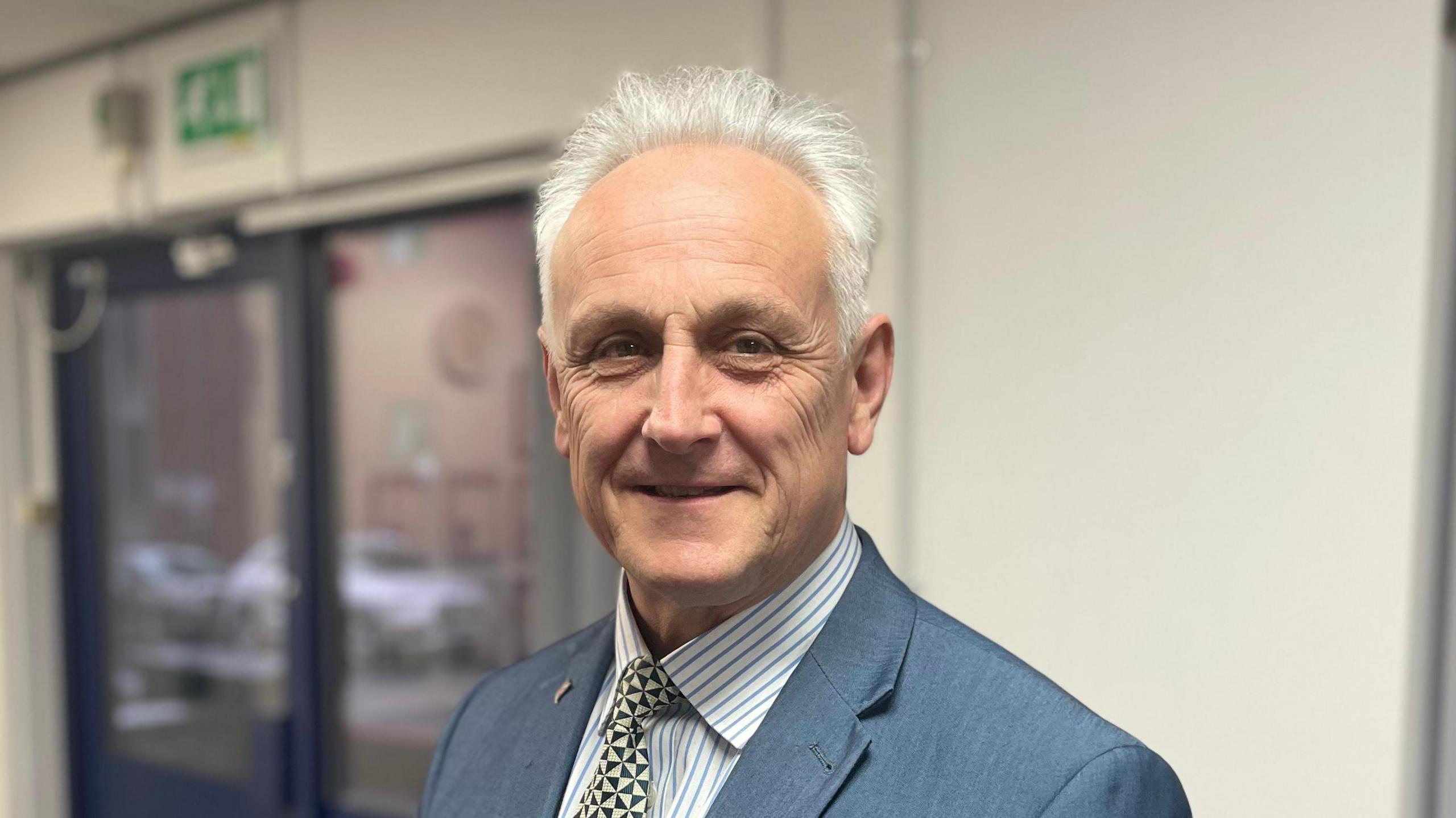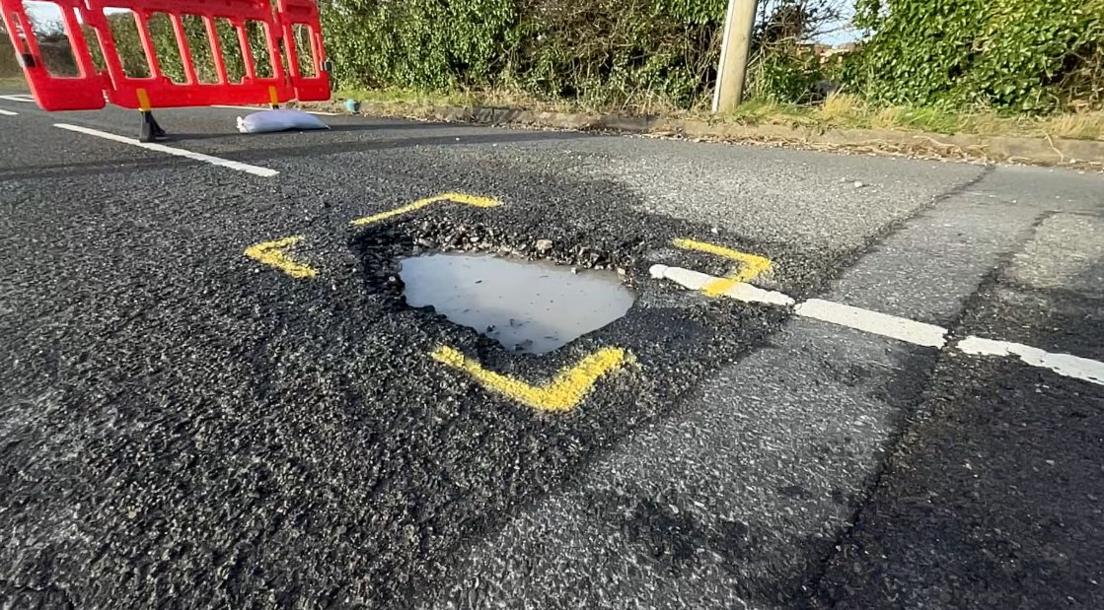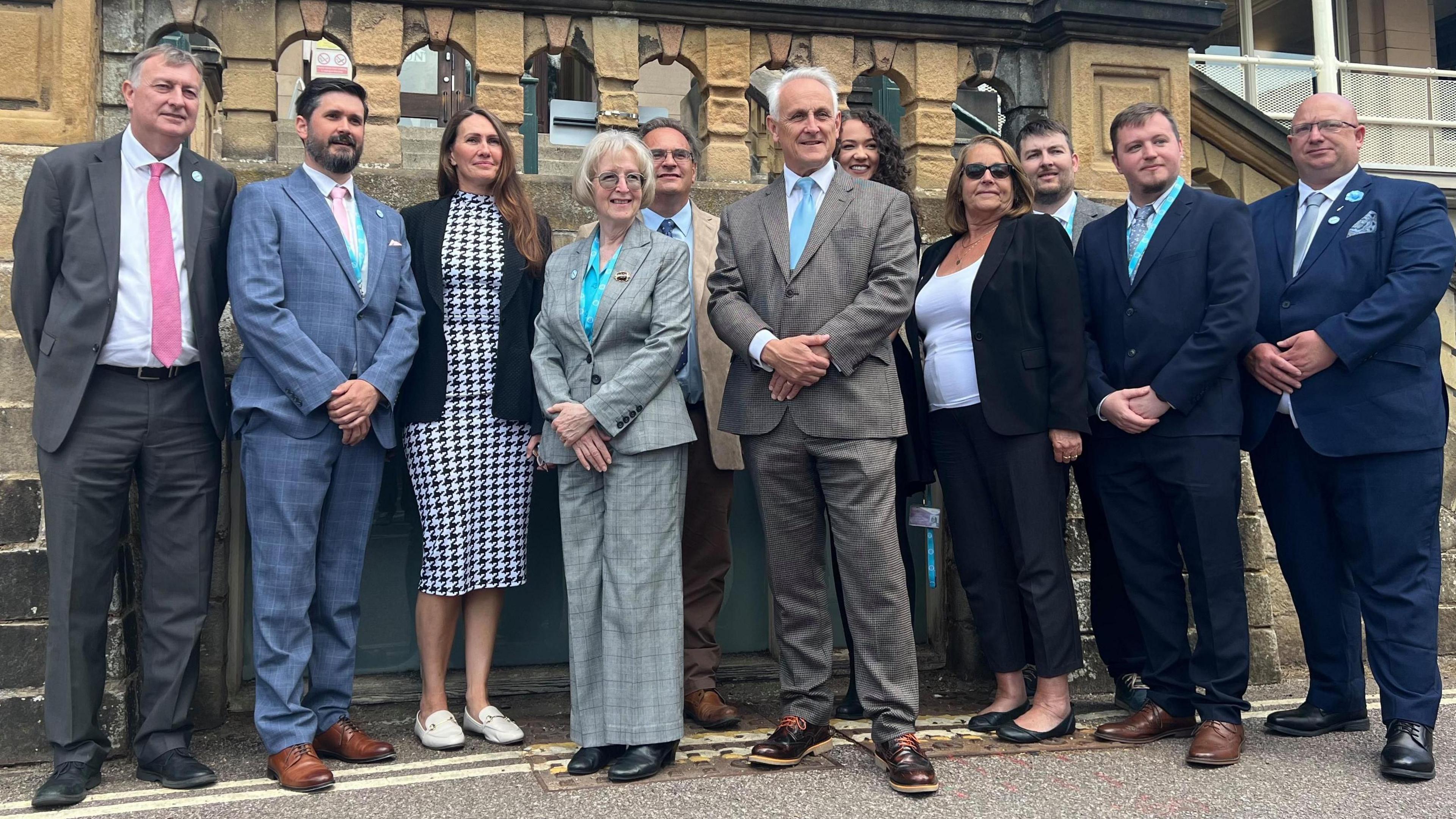What are Reform UK's priorities in Derbyshire?

Reform's new leadership team were formally approved by the council this week
- Published
"Never before has Derbyshire seen such wholesale changes to the political landscape."
That is what Alan Graves told the county council's first full meeting in Matlock this week since the local elections saw them sweep to power.
With the Conservatives now in opposition and the Labour Party on a historic low of just three seats, local residents are being told to expect a very different kind of leadership than what has come before.
Graves has said that 12 months is a fair measurement local residents should judge the party by on whether they have seen visible improvements.
It is early days, but the new leadership have spoken so far about a number of key areas they want to tackle "quickly".
'DOGE'
The new leaders say that this is their "number one priority".
DOGE is a reference to the newly-created Department of Government Efficiency in Donald Trump's US administration, with a pledge to cut waste forming a central part of Reform's election campaign.
To signify their focus on this area, a new leadership role has been created for "Council Efficiency (DOGE)".
It will be a wide-ranging role across all the cabinet portfolios assessing where waste can be eliminated.
The leaders in Derbyshire have spoken about the need to do a "full audit" of the council's books to see where money can be saved.
"The first port of call is to go to [executive directors], find out what the issues are, look at those finances and see where we can make efficiencies," says Graves.
He also says the group already have "several ideas" for quick gains.
Council job cuts forming part of this drive have not been ruled out.
"If [council staff] are efficient then they've got nothing to be scared about", he told the BBC.

Graves told the council "we won't become bankrupt"
Bubbling under the surface of the DOGE policy is the very real need to keep the authority's finances on track.
One of Reform's newly elected councillors in Derbyshire claimed in a social media post that the authority was "six months from bankruptcy".
While the leadership have played this down, the council's books remain riddled with heavy overspends and debt.
"We won't become bankrupt," Graves told the BBC, while acknowledging "how bad the finances are".
"We'll turn that around," he said. "In a year's time, you'll see that we're still operating as a local authority, and we'll balance the budget, and we'll be making savings."
He added that Reform would be working to "keep council tax low" - something the previous Conservative leaders also sought to do, but eventually failed amid the scale of the challenges they faced.

The state of roads in Derbyshire came under scrutiny during the recent local election campaign
The state of Derbyshire's roads has bought the county some unwelcome attention in recent years, with the RAC singling Derbyshire out for the poor conditions motorists face.
Alan Graves told the BBC this week that that local residents would see an improvement in the roads within a year.
Similarly to the new DOGE role, as a signal of intent, the new cabinet member in charge of Derbyshire's roads had a specific reference to potholes in her title.
Councillor Charlotte Hill said at the inaugural meeting in Matlock this week that Reform would be setting out "detailed plans" on fixing potholes once they had assessed the overall picture and available funding.
Hill, who also works at National Highways, said the new administration would seek to immediately "accelerate the quantity and improve the quality of the works they are currently doing".
Asylum accommodation
Reform's new cabinet member for Business Services Stephen Reed has said previously the group would "fight" the Home Office if asked to house more asylum seekers in local hotels.
The national party is said to be consulting lawyers on how exactly this can be done in counties under its control where this policy continues, although the government has said it wants to bring hotel accommodation to an end.
The Home Office is responsible for housing adult asylum seekers and while councils can object, they have little power to stop it.
In Derbyshire, excluding the city of Derby, the number of asylum seekers in hotels is relatively small.
The figure currently stands at around 170 as of March this year, a reduction from roughly 240 in December 2024.
However, it is an issue that sparks fierce debate locally that Reform hope to make clear they are trying to address in some way.
SEND
Special educational needs services in Derbyshire was put under the spotlight following a damning Ofsted report last year that said families were being left in "crisis" by the local authority's "widespread and systemic failings".
Derbyshire received close to 2,000 applications for needs assessments in 2024 from local parents, most of which were approved.
A special post has been created for SEND and Education and Graves has acknowledged the difficulty of the area.
He has pledged that families who have faced lengthy and costly delays from the council in the process of seeking help with their children's needs will "absolutely" see that the process is sped up.
But there is also uncertainty around how the service might be impacted by Reform's anti-waste agenda.
Get in touch
Tell us which stories we should cover in Derby
Follow BBC Derby on Facebook, external, on X, external, or on Instagram, external. Send your story ideas to eastmidsnews@bbc.co.uk, external or via WhatsApp, external on 0808 100 2210.
Related topics
- Published22 May

- Published21 May
